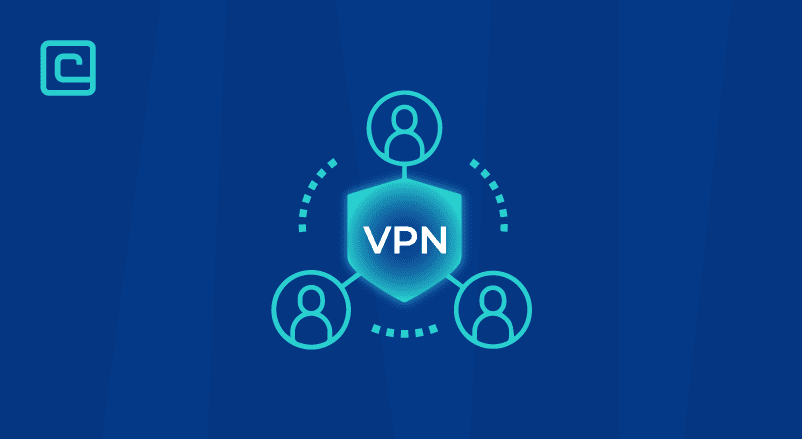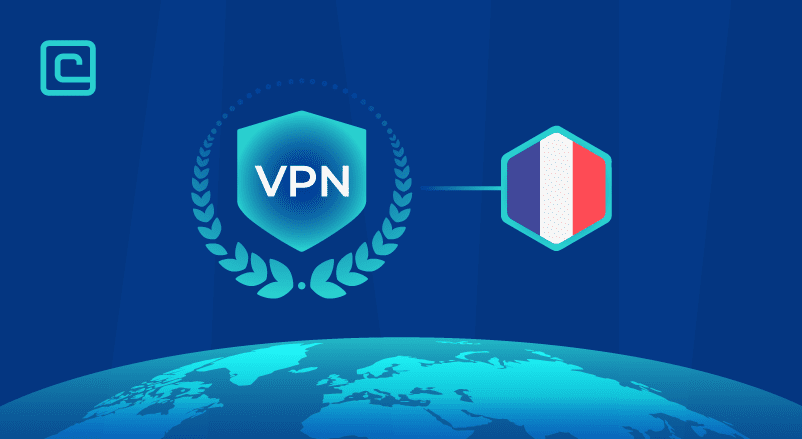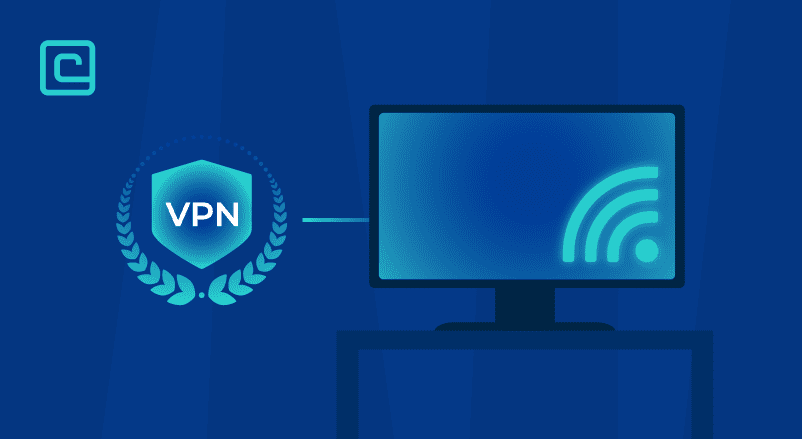Can a VPN Provider See My Data and Internet Activity?

In today’s digital world, keeping your online presence safe is as important as locking your house. You’ll learn how your VPN provider plays a key role in protecting your online activities. It’s not just about using a service; it’s about defending your right to privacy.
As we explore this topic, we’ll address a pressing question: can your VPN provider look into your Internet activities? VPNs act as digital guardians, but how well do they keep your secrets? We’ll break down their role in privacy, so you can confidently navigate the internet.
Can a VPN Provider Spy On You – Key Points:
Yes, a VPN can possibly monitor your internet activity and browsing data.
- VPN companies may track browsing data, but no-logging policies can help protect user privacy.
- VPNs can monitor internet activity, but reputable VPN providers with strict privacy policies can help minimize the risk.
- By choosing a reputable VPN provider users can reduce the chance of their browsing data being tracked
- Ensure that their no-log policy is confirmed by an independent audit.
To avoid a VPN spying on your browsing data, get a VPN that has done 3 independent audits.
Test Your VPN Knowledge – Take A Quiz!
Can VPN Providers Access My Data?
Yes, VPN providers can see your data. They act as a middle-man for all your online activities.
They can see unencrypted data and some encrypted data if they can crack the code.
But, just because they can doesn’t mean they will. It’s key to know the difference between what’s possible and what’s done.
Privacy experts agree: not all VPNs are the same. They stress picking ones with strong no-logs policies. These policies say they won’t store or check your data, focusing on trust and following the law.
What Information Do VPNs Log About Users?
VPN providers might log different types of data. Here are some examples:
- Connection Times: When you start and stop using the VPN service.
- IP Addresses: Your real IP address or the one given by the VPN.
- Bandwidth Usage: How much data you use during your session.
- Internet Activity: Websites you visit, data sent and received – not common, but it can happen.
- Internal Customer ID: Your customer ID for billing within the VPN provider’s system.
They might say it’s for fixing issues, improving service, or meeting legal needs. The type of data logged varies, with some VPNs sticking to no-logs policies.
How Do VPN Logs Affect Your Privacy?
Logged data can affect your privacy. Any data kept could be at risk of leaks or legal requests. The type and length of logs play a big role in this risk.
A policy that logs little and only for a short time is less worrying. But, long-term, detailed logs can track your online history.
Impact on User Privacy:
- Vulnerability to Data Leaks: Stored info could leak if the VPN’s security fails.
- Legal Compliance Risks: Data might be given to authorities if asked.
- Privacy Concerns: How long and what data is logged affects privacy risks.
- Policy Transparency: Clear logging policies are better, showing how data is handled.
- Log Duration: Logs kept for a short time for troubleshooting are less invasive than permanent ones.

Are There Any Legal Implications of VPN Data Logging?
VPN data logging has big legal issues, affecting many countries. It’s important for both casual users and business people to know these laws. This knowledge helps choose the right VPN service.
- VPN providers must follow the laws of their country, which might ask for user data.
- Logging data can break privacy laws in strict countries, leading to big fines.
- Users might get caught up in legal problems if a VPN logs data against their local laws.
Here’s what to keep in mind:
- The VPN provider’s location affects their legal duties to log and share data.
- VPN services must follow laws like GDPR and national privacy rules.
- Some laws protect your data, but others might ask for it.
- VPNs deal with law enforcement requests, sometimes giving out logged data.
- Transparent VPNs tell you how they handle legal requests.
Knowing your VPN’s data logging and legal stance is key. It helps protect your online activities from unwanted attention.
How to Choose a Trustworthy VPN Service?
Finding a reliable VPN is crucial for your digital safety. Here are important factors for a VPN that protects your privacy:
- No-logs Policy: Choose a VPN with a strict no-logs policy. This means they keep less data, reducing your risk.
- Independent Audits: Look for VPNs audited by third parties. This proves their claims about privacy and no-logs.
- Jurisdiction: Think about the country where the VPN is based. Some places have laws that might not protect your data.
- Security Features: Pick a VPN with strong encryption, a kill switch, and DNS leak protection. These stop data leaks if the connection drops.
- Reputation: Check out what others say. A VPN with a good reputation is more likely to be trustworthy.
- Transparency: See how open the VPN is about its operations and data policies. They should be clear about legal requests.
- Payment Options: If a VPN accepts anonymous payments like cryptocurrency, it shows they value privacy.
Remember, a good VPN is essential, but you also need to stay careful online.
Is It Safe to Use free VPN Services?
Free VPNs are not the same as Freemium VPNs like ProtonVPN or AtlasVPN. Free VPNs have big safety concerns:
- Data Security: Free VPNs often don’t use strong encryption, leaving your data at risk.
- Privacy Risks: They might log and sell your data to make money.
- Limited Features: Free VPNs usually have less bandwidth, fewer servers, and slower speeds. This can hurt your internet and security.
- Ad-Supported: Free services might show ads that can harm your privacy and experience.
- Malware Risks: Some free VPNs have malware, which can harm your device and data.
For a safer, more secure experience, consider a premium VPN. They offer better privacy and security.
Which VPNs Are Trustworthy And Do Not Keep Logs?
Three VPNs stand out for their trustworthiness and no-logs policy: NordVPN, Surfshark, and ExpressVPN. They are known for protecting user privacy.
Here is how they stand out:
1. NordVPN

| 🌐 Website: | nordvpn.com |
| 🏢 Headquarters: | Panama |
| 📍Servers/Countries: | 5800+ servers in 60 countries |
| ₿ Accepts Cryptocurrency | Yes |
| 💸 Deals & Coupons | Get 68% off + 3 months extra |
NordVPN is a leader in Internet privacy. It has a no-logs policy that’s been checked by PricewaterhouseCoopers AG, Switzerland. This means your online actions are not tracked or stored when you use NordVPN.
NordVPN shares these audit results openly. This builds trust with its users.
NordVPN uses RAM disk servers for its no-logs policy. These servers can’t keep data when they’re turned off. This means all data is erased with each restart.
NordVPN also has cool features like Double VPN and Onion Over VPN. Double VPN encrypts your data twice. Onion Over VPN adds extra protection by using Tor with VPN security.
| Plan | 1-year plan | 1-month plan | 2-year plan |
|---|---|---|---|
| Standard Plan | $4.99/month | $12.99/month | – |
| Plus Plan | $5.99/month | $13.99/month | – |
| Complete Plan | $6.99/month | $14.99/month | $5.49/month |
Pros
- Thousands of lightning-fast and well-optimized servers
- Unblocks all the major streaming sites
- Fully supports Torrenting and P2P
- Strict no-logs policy and RAM-disk servers
- Ad blocker and malware protection features
- Robust security features and military-grade encryption to protect you from DDoS attacks and other online threats
- 24/7 live chat support
- 30-day money-back guarantee
Cons
- Only 6 simultaneous connections
- No free trial
2. Surfshark

| 🌐 Website: | surfshark.com |
| 🏢 Headquarters: | The British Virgin Islands |
| 📍Servers/Countries: | 3,200+ servers in 100 countries |
| ₿ Accepts Cryptocurrency | Yes |
| 💸 Deals & Coupons | Save 84% Now! |
Surfshark is known for its easy-to-use interface and strong privacy stance. Its no-logs policy has been checked by Cure53, a cybersecurity firm. This makes Surfshark a trusted VPN provider.
Surfshark uses RAM-only servers, just like NordVPN. These servers can’t keep data long-term. This means Surfshark doesn’t keep any data on you.
Surfshark has tools like CleanWeb to block ads and harmful links. This makes your browsing safer and better.
Surfshark’s Camouflage Mode makes your VPN traffic look like regular traffic. This helps avoid ISP throttling or surveillance.
| Surfshark Plans | 2-year price | 1-year price | 1-month price |
|---|---|---|---|
| Starter | $2.30/month | $3.99/month | $12.95/month |
| Surfshark One | $3.22/month | $4.49/month | $17.95/month |
| Surfshark One+ | $5.99/month | $8.29/month | $22.95/month |
Pros
- A very affordable VPN provider
- Unlimited simultaneous connections
- Ad-blocking feature
- Unblocks streaming platforms
- Ad blocker and malware protection features
- A fast and light WireGuard protocol
- Allows split-tunneling and has a multi-hop VPN feature
- No-log policy and robust security features
- GPS spoofing on Android devices
- 30-day money-back guarantee
Cons
- No free version
- Does not allow P2P seeding
3. ExpressVPN

| 🌐 Website: | expressvpn.com |
| 🏢 Headquarters: | The British Virgin Islands |
| 📍Servers/Countries: | 3000+ servers in 94 countries |
| ₿ Accepts Cryptocurrency | Yes |
| 💸 Deals & Coupons | +3 months FREE! |
ExpressVPN is a top choice for privacy. It has let independent auditors like PricewaterhouseCoopers (PwC) check its privacy policy and tech.
These audits confirm ExpressVPN’s no-logs policy. This means they don’t keep any data on your activities. ExpressVPN’s policy is clear and focused on users.
ExpressVPN uses TrustedServer technology with RAM disks. This ensures all data is erased when servers restart. This keeps your data safe.
ExpressVPN also has a new Lightway protocol for faster speeds. With servers all over the world, ExpressVPN is great for privacy and speed.
| ExpressVPN Plans | Price per Month | Simultaneous Connections |
|---|---|---|
| 1-Month Plan | $12.95 | 5 |
| 6-Month Plan | $9.99 | Up to 8 |
| 1-Year Plan | $6.67 | Up to 8 |
Pros
- Works with streaming
- Supports torrenting
- No-logs policy
- TrustedServer technology with RAM-only servers
- Premium security features
- 30-day money-back guarantee
Cons
- Expensive subscription plans
- Only 5 simultaneous connections
FAQ
Can a VPN provider sell my data to third parties?
Yes, some VPN providers might sell your data. It’s key to pick a VPN that says they don’t sell or share user data.
What happens to my data when I disconnect from a VPN?
When you disconnect from a VPN, your data isn’t encrypted anymore. It can be seen by your ISP or others watching your network.
Are there any real-life cases of VPNs compromising user data?
Yes, some VPNs like HolaVPN have been caught sharing user data.
What are the potential risks of using a VPN with weak encryption?
Weak encryption makes your data easy to intercept and decode. This could let hackers or surveillance see your online activities and personal info.
Can VPNs protect my data on public Wi-Fi networks?
Yes, VPNs encrypt your internet traffic. This keeps your data safe from hackers on public Wi-Fi networks. It protects your login info and personal data from being stolen.
What should I do if I suspect my VPN provider is compromising my data?
First, reach out to your VPN provider and ask about their data privacy. If you’re not happy with their answers, stop using their service. Look for a trustworthy VPN provider instead. Keeping your online privacy and security safe is key.
Final Thoughts
While VPNs help protect your online safety, they’re not perfect. VPN providers might watch your browsing and internet use. Free VPNs might track and sell your data too.
Choose a VPN with a strong no-logging policy. Use extra security steps and know the risks. This way, you can use VPNs wisely and keep your online life private. You can even pay for it anonymously to keep your VPN use secret.

| 🌐 Website: | nordvpn.com |
| 🏢 Headquarters: | Panama |
| 📍Servers/Countries: | 5800+ servers in 60 countries |
| ₿ Accepts Cryptocurrency | Yes |
| 💸 Deals & Coupons | Get 68% off + 3 months extra |
VPN Expert, BEng in Network Engineering


Theres a limit to how much they know but it is still best to go with a provider that has a no logs policy. The premium providers with a no logs policy PureVPN and PIA, however PureVPNs cheaper and has a 7-day trial as well
Hi simit, thanks for the comment! Indeed, it is best to go for a no-log policy provider, always! However, I must say a concern regarding PIA is that they are based in the US, which is not a good jurisdiction to operate a VPN in. Personally, I would not recommend PIA and stick with NordVPN.
Oh you say that because of the 5 eyes alliance right? Many providers stress on that. Also youre right Nord is based in Panama. PureVPN is based in HongKong thats a good option too in that case. Cant seem to find where Express is based
Yes, it’s because 5 eyes alliance and also because US does not have good consumer data protection laws. As far as I know, ExpressVPN’s jurisdiction is in The British Virgin Islands, which is a good location to operate a VPN in. But from their website I understood that they have a distributed team all around the world like in Singapore, London and so on (which doesn’t affect the data collection or logging policies anyways).